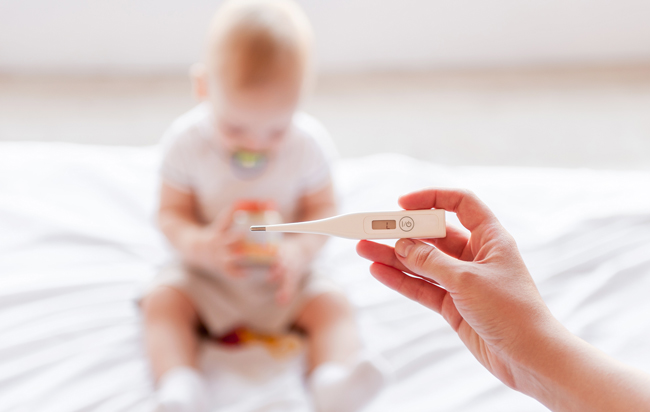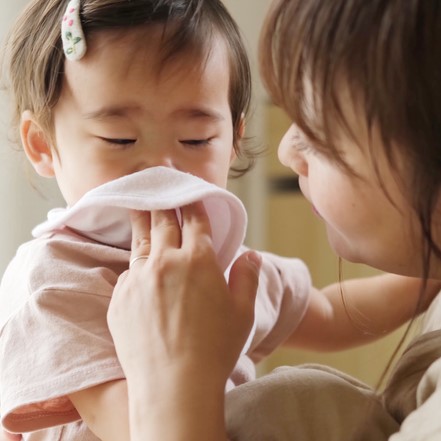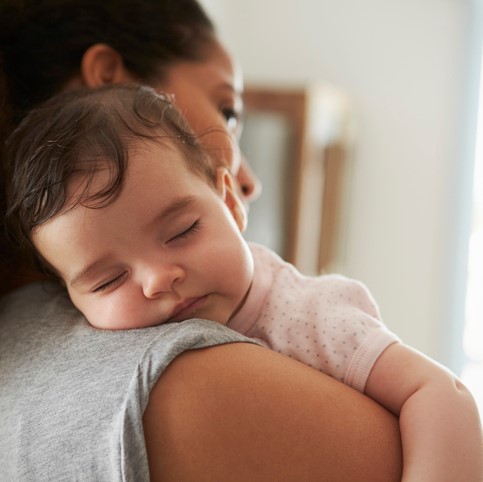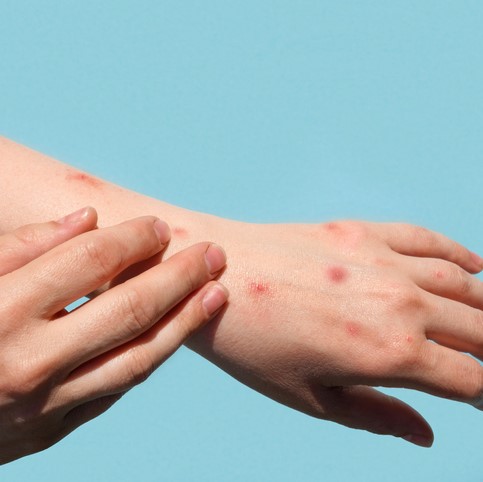Advice for Caring for Your Baby or Child if They Are COVID-19 Positive

What to expect in terms of symptoms and signs, how to manage their sickness at home, and when to seek help.
With the current Omicron outbreak of COVID-19 in Aotearoa – New Zealand, more children are becoming sick with COVID-19. It is understandable to be worried about your baby or child becoming unwell, however, most tamariki will have a mild illness and be able to recover at home.
SYMPTOMS OF COVID-19 IN BABIES AND CHILDREN
COVID-19 symptoms and their severity can vary widely. For most children, their symptoms will be mild and many will have none. Only a small number of children will require additional medical care from their GP, urgent care, or the hospital. If you are worried about your child’s health, it’s important to still seek help even when isolating at home.
The most common symptoms of COVID-19 in children are:
- Fever (38 – 38.9°C is a mild fever, 39 – 39.9°C is a high fever, 40°C or higher is a very high fever)
- Cough
- Runny nose
- Headache
- Tiredness
- Eating or drinking less than normal
Other, less common symptoms include:
- Diarrhoea
- Vomiting
- Tummy pain
- Body aches and pains
- Sore throat
- Loss of taste or smell
- Rash
- Swelling or blistering on the toes/fingers
- Irritated or red eyes
You may wish to keep track of your child’s symptoms in a diary, in case they become more unwell and need medical help. You can make a note, three times a day, of the symptoms they’re experiencing, plus their temperature, breathing rate (number of breaths taken in one minute), and overall wellbeing. If you have been given a pulse oximeter, record their pulse rate and oxygen level too.
Health Navigator NZ has provided a day-by-day breakdown of what to expect if your child is positive for COVID-19. Read it here.
HOW TO LOOK AFTER THEM AT HOME
COVID-19 is a viral infection, therefore it cannot be treated with antibiotics. Most children will experience mild illness and can be cared for like you would any other cold.
Fever
- If your baby is under three months old and has a fever – even a mild one – call your healthcare team to arrange for your baby to be checked.
- Give them plenty of fluids. It’s important to keep them well hydrated with breast milk if they are breastfed or formula if formula fed.
- Keep clothing and bedding lightweight. Your child will need fewer layers to lower their body temperature. The room temperature should be normal.
- To help them cool down, you can apply a cool cloth to your child’s face, arms, and neck if you wish. It is not advised to give your child a bath or shower to cool them as this rapid cooling can cause them to shiver and make their fever worse.
- Regularly use a thermometer to check the severity of your child’s fever.
- Check your child’s temperature during the night.
- If your child is happy and doesn’t seem unwell, you don’t need to do anything else; their fever does not need to be treated with medicine if they are otherwise well.
- If your child is miserable or distressed, you can give them paracetamol. You must always follow the recommended dosage on the bottle.
- If your baby is under two years of age, get advice from your GP before giving your child ibuprofen.
- Do not give your child cold and flu medicines.
Cough
Most coughs do not require treatment or medicine. Children do not need to be given cough medicine. If your child is under 12 months, do not give them honey as this can make them seriously unwell.
Headache
If your child is in pain, you can give them paracetamol. You must always follow the recommended dosage on the bottle. This can be bought from a pharmacy or your doctor can provide you with a prescription.
If your baby is under two years of age, get advice from your GP before giving your child ibuprofen for pain relief.
Vomiting and diarrhoea
It’s important to keep an eye on how much your baby is drinking or eating. It’s okay if they don’t want to eat as much as normal (if they have started on solids) but it’s vital to keep them well hydrated while unwell. Most children will be able to recover at home with plenty of fluids.
If your baby is breastfed, continue breastfeeding on demand – they may want to have smaller feeds more frequently. If they are formula fed, continue giving their usual formula feeds. If your child is over one year, you can give them water and cows’ milk.
If you or your partner are unwell with COVID-19, it is advised that you do not co-sleep/bed-share with your baby. You may be extremely tired while your body fights the infection so you may not be as responsive as you are when you’re well. If you have a temperature, your baby could overheat. It’s best to have your baby sleep in a separate sleeping space in the same room as you to reduce their risk of SUDI.
WHEN TO SEEK HELP
Check in with your GP or healthcare team within the next 12 hours if your baby or child:
- Is under three months and you are worried about them.
- Has a sore throat or joint pain.
- Is drinking half their usual fluids (breast milk, formula, or water).
- Is having fewer than four wet nappies in 24 hours.
- Cries or complains when doing a wee.
- Has vomited up at least half of their feed (food or milk) after each of the last three feeds.
- Has diarrhoea (runny, watery bowel motions).
- Is showing signs of dehydration (wee that is very dark or has blood in it).
- Is in pain.
- Is getting more unwell.
- Has a fever and is not improving after two days.
- Has had a fever for more than five days.
Call your GP or healthcare team urgently if your child:
- Is under three months and you are worried about them.
- Is under three months old and has a fever.
- Is under three months old and feels too cold.
- Looks unwell and you are worried. Trust your instincts.
- Feels cold, is much paler than usual, or suddenly goes very white.
- Seems more floppy, drowsy, or less alert than usual.
- Is responding less than usual to what is going on around them.
- Has an unusual cry (high pitched, weak, or continuous) for one hour or more.
- Is breathing more quickly than normal or grunting when breathing out.
- Is making a wheezing sound when breathing out.
- Is complaining of a stiff neck or the light hurting their eyes.
- Has a severe headache.
- Refuses to drink any fluids, not even small sips.
- Is not doing any wee.
- Has green vomit.
- Is vomiting a lot and cannot keep sips of fluid down.
- Has blood in their vomit.
- Has blood in their poo.
- Has tar-like poo.
- Is in severe pain.
- Has an oxygen level between 92-94% (if you’ve been given a pulse oximeter).
Seek urgent medical attention for your child by calling 111 if:
- A blue colour has developed around their mouth.
- They are struggling to breathe or have stopped breathing.
- A worrying rash had developed with reddish-purple spots that don’t go away when your press on it.
- Is unconscious or cannot be woken.
- Their oxygen level is less than 92% (if you’ve been given a pulse oximeter).
Tell the 111 operator that your child is positive for COVID-19 so the paramedics and doctors caring for your child can take the necessary precautions.



